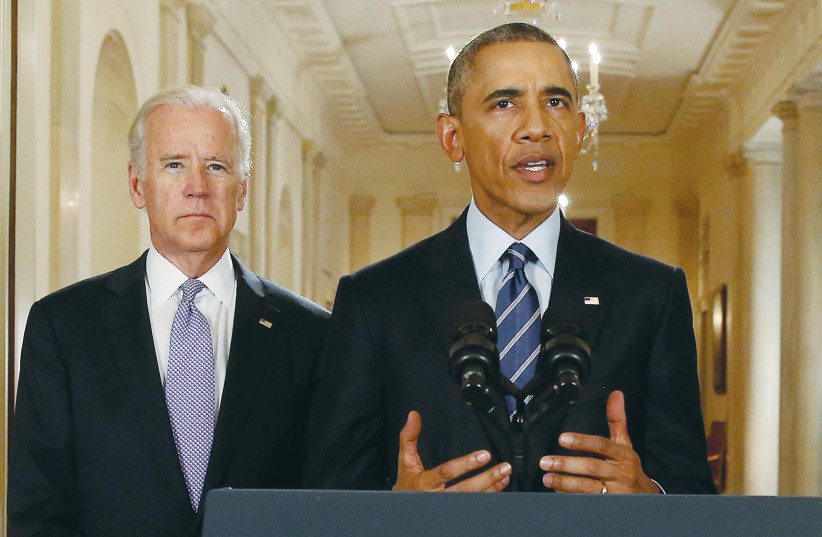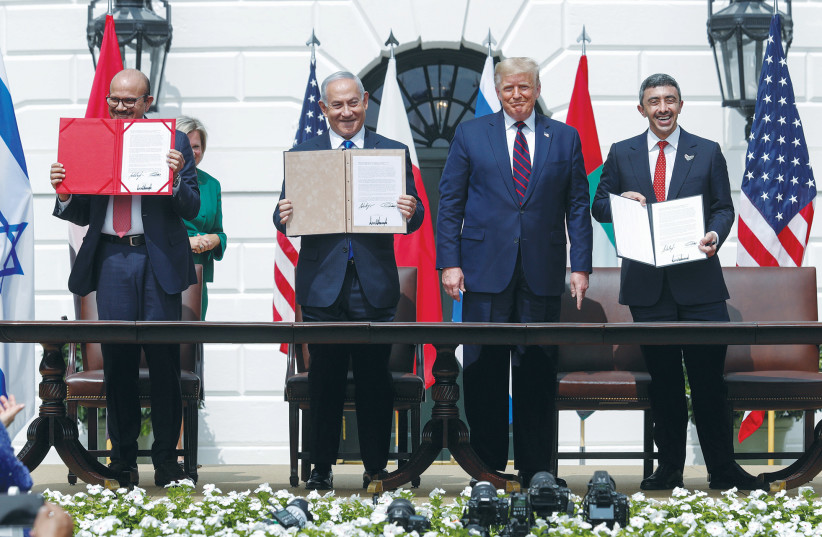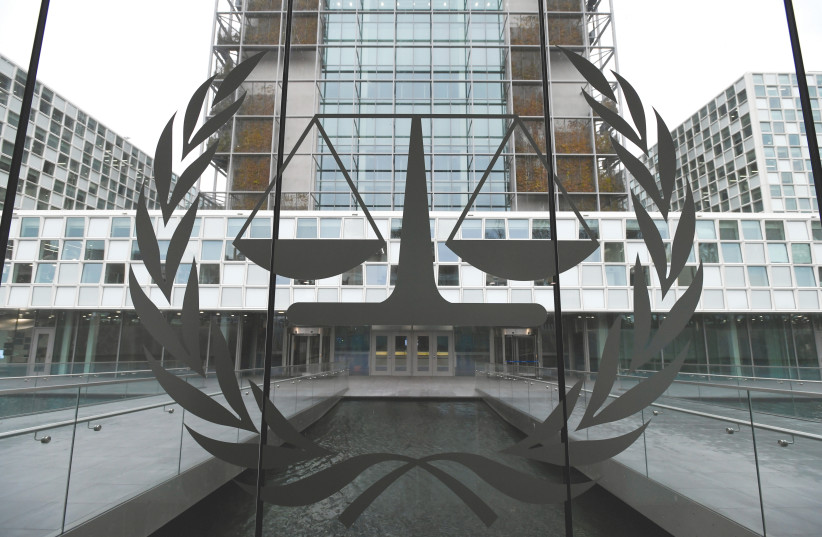The regional impact of Russia's growing military alliance with Iran was on the agenda when Prime Minister Benjamin Netanyahu spoke Thursday in Jerusalem with US National Security Advisor Jake Sullivan.
The two men also discussed a joint Israeli American strategy against Iran and a possible normalization deal between Saudi Arabia and the Jewish state.
"You should know that we see you as a trusted partner in matters of assuring security and of course advancing peace," Netanyahu told Sullivan.
"Today you come at a special time because we have acute challenges to our security and vast opportunities for peace," he added.
Sullivan is the first high-level member of the Biden administration to come to Israel since Netanyahu's new government was sworn in last month. A visit by US Secretary of State Antony Blinken is expected to follow as well as a possible Netanyahu trip to Washington.
He comes at a time when US attention is increasingly focused on the Russian-Ukrainian war, sparking fear that does not plan to be as engaged in the Middle East.
The public conversation around the visit focused mostly on areas of cooperation between the two countries. The two men discussed the joint effort between their countries to halt Iran's nuclear program and Tehran's destabilizing activities in the region, according to the Prime Minister's Office.
Sullivan underscored for Netanyahu that US President Joe Biden is committed to preventing Iran from obtaining nuclear weapons.

Iran had in the past been a divisive issue between Jerusalem and Washington, due to the Jewish state's opposition to the 2015 Iran deal. Now that the deal appears to be off the table, the two governments are expected to for a stronger united front when it comes to a joint strategy to combat Iran.
The growing military alliance between Iran and Russia as well as Tehran's execution of protestors has also helped tightened the US-Israeli alliance against the Islamic Republic.
The White House pledges it "unwavering commitment to Israel’s security and to countering the continued threats posed by Iran to Israel, the United States, and the wider region," in a statement it issued Thursday night about the visit.
In his talks with Israel, "Sullivan stressed the US commitment to ensure Iran can never acquire a nuclear weapon.
"They also discussed Ukraine, as well as the burgeoning defense partnership between Russia and Iran and its implications for security in the Middle East region," the White House said.
US State Department spokesman Vedant Patel said that “Iran’s destabilizing actions” such as its provision to Moscow of armed drones and other security assistance to Russia for use in Ukraine, it is troubling for the world and “has immediate impacts on Israel and Israel’s neighbors as well as other countries in the region.”
When it came to the region the two men also spoke about expanding the Abraham Accords under whose auspices Israel normalized ties with four Arab countries.
Israeli officials have recently issued a number of statements about a possible pending deal with Saudi Arabia.
There was an "emphasis on a breakthrough regarding Saudi Arabia" with respect to the normalization of ties between the two countries, the PMO said.
The issues of Iran and Saudi Arabia were raised in many of Sullivan's meetings with Israelis throughout the day, including with Foreign Minister Eli Cohen, and Defense Minister Yoav Gallant.
"Cooperation between Israel and the US is necessary to remove the Iranian threat over Israel, the Middle East and the entire world," Cohen told Sullivan.
"I emphasized the need for increasing US pressure on Iran, which would allow for further regional breakthroughs, including the expansion of cooperation based on the “Abraham Accords," Cohen said.

At the World Economic Forum in Davos, Wednesday Saudi Arabia’s Foreign Minister Prince Faisal bin Farhan Al Saud said the focus needed to be on achieving a two-state solution to the Israeli-Palestinian conflict.
In Jerusalem, on Thursday however, Israeli and US officials focused on strengthening Israel's regional ties, without any advancement on the Palestinian track.
Sullivan and his counterparts from Israel, Bahrain and the United Arab Emirates — Tzachi Hanegbi, Nasser bin Hamad Al Khalifa and Sheikh Tahnoun bin Zayed Al Nahyan — held a Zoom meeting on how to advance regional issues in the areas of clean energy, emerging technology, regional security, and commercial relations.
They also discussed the Negev Forum, which also includes Morocco and Egypt as well as the I2U2, which is the Israel, India, US and UAE partnership.
The White House said that, "Sullivan underscored President Biden’s commitment to promoting a more integrated, prosperous, and secure Middle East region with benefits for all of its people."
Separately Cohen held his first conversation with his Egyptian counterpart Sameh Shoukry, which signed a peace deal with Israel in 1979. It was the first country to do so, but cooperation has not been maximized and there is a push to expand relations.
Cohen praised the conversation between them as "excellent" and said, "we agreed to strengthen our bilateral relations to maintain regional stability.
"Following my visit to Egypt about two years ago, which led to the opening of flights to Sharm el-Sheikh and an increase in the volume of economic trade, we agreed to promote further steps to increase the number of flights and expand economic ties," Cohen tweeted.
The meeting is held amid Israeli-Palestinian tensions
Sullivan arrived amid tensions between the Biden administration and Israel over its the new government's judicial overhaul, potential issues in its treatment of minorities and women, as well as its stance in support of settlement growth and against a Palestinian state.
The White House hinted at the discord hen it said that "in all of his meetings, Mr. Sullivan recalled that the United States’ longstanding partnership with Israel, which celebrates its 75th anniversary this year, is built on mutual interests and democratic values.
"Sullivan stressed that the Administration will continue to support the two-state solution, and will discourage policies that endanger its viability," the White House said.
It added that "Sullivan underscored the urgency of avoiding unilateral steps by any party that could inflame tensions on the ground, with special attention to maintaining the historic status quo with respect to the holy places in Jerusalem."
"I have known President Biden for 40 years as a great friend of Israel and I know how much he trusts you in matters of national security.
"You should know that we see you as a trusted partner in matters of assuring security and of course advancing peace. Today you come at a special time because we have acute challenges to our security and vast opportunities for peace.
Israel took time to explain to Sullivan its decision to level financial sanctions on the Palestinian Authority and to halt Palestinian construction in Area C of the West Bank, which is under IDF military and civilian control.
The move came in response to the PA's successful campaign that culminated last month in UN General Assembly to request from the International Court of justice for an advisory opinion on the illegality of the "occupation."

Netanyahu told Sullivan that the Palestinian push for an ICJ opinion was a direct attack against the Jewish state that justified its response.
Participants in an expanded meeting included Strategic Affairs Minister Ron Dermer, Netanyahu's Chief of Staff Tzachi Braverman, National Security Adviser Tzachi Hanegbi, Israeli Ambassador to the US Mike Herzog, Deputy Assistant to Biden Brett McGurk and US Ambassador to Israel Thomas Nides.
